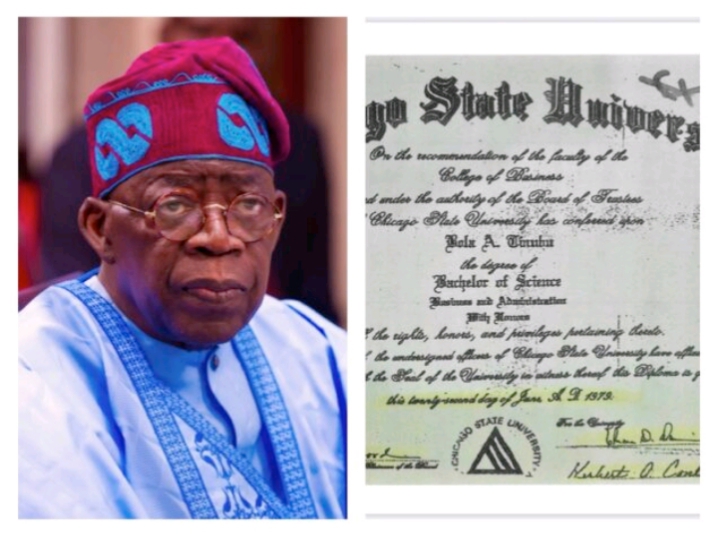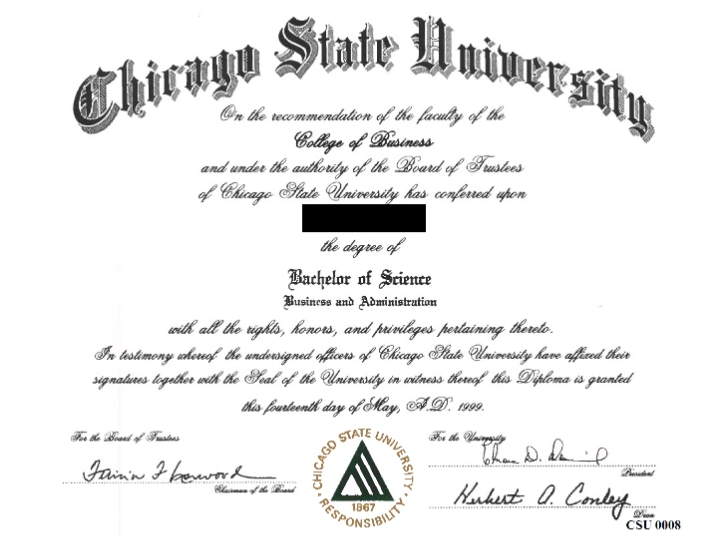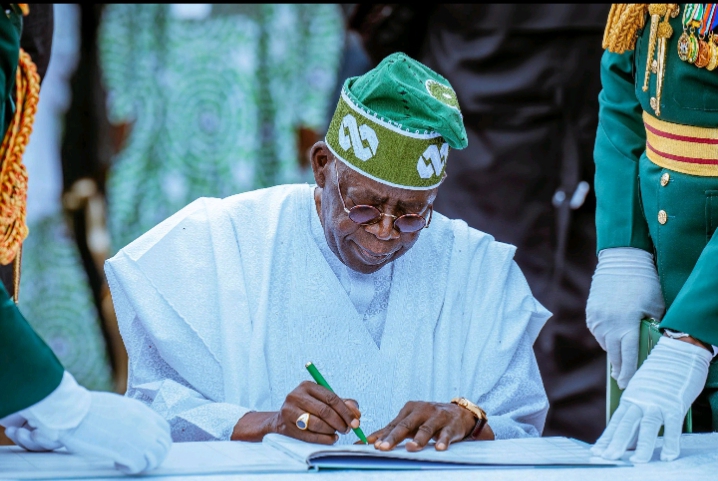A renewed legal offensive is underway against Nigerian President Bola Ahmed Tinubu’s academic credentials, as a United States-based law firm prepares to file a writ of mandamus compelling Chicago State University (CSU) to revoke his certificate. This marks a significant escalation in a long-standing controversy over the authenticity of Tinubu’s CSU diploma, reigniting debates that have persisted for over two decades.
Questions surrounding Tinubu’s academic qualifications first surfaced in 1999 when renowned Nigerian human rights lawyer, the late Gani Fawehinmi, raised concerns about discrepancies in his educational records during his tenure as Governor of Lagos State. These concerns resurfaced prominently during the 2023 presidential elections when former Vice President and opposition candidate Atiku Abubakar pursued legal avenues to verify Tinubu’s academic claims.

Through a U.S. court order, Atiku’s legal team obtained records from CSU, which revealed inconsistencies in the certificate Tinubu submitted to Nigeria’s Independent National Electoral Commission (INEC). Among the discrepancies were mismatched signatures, variations in university logos, and conflicting issuance dates—prompting renewed calls for deeper scrutiny. Nevertheless, Nigerian courts dismissed Atiku’s legal challenge on procedural grounds.

In 2025, reports emerged that a U.S.-based law firm is preparing to initiate legal action aimed at compelling CSU to revoke Tinubu’s diploma. Central to this effort are allegations that Tinubu’s academic records—including documents linked to Government College, Lagos—contain forgeries. Notably, the school Tinubu claimed to have attended was established years after the period he allegedly studied there. Legal analysts suggest that if the allegations are substantiated, this case could set a powerful precedent in enforcing international academic integrity and accountability, particularly for individuals holding high public office.
Investigative journalist David Hundeyin has been instrumental in bringing global attention to inconsistencies in Tinubu’s academic records. His reporting unearthed errors in CSU’s admission documentation—most notably a gender misidentification attributed to clerical oversight—and highlighted unusual features on Tinubu’s diploma, including design elements not consistent with CSU certificates issued in 1979. Hundeyin’s investigations have sparked national and international discourse, prompting legal experts, civil society organizations, and political opposition figures to call for full transparency. His findings have bolstered the case for legal action in the U.S., adding momentum to efforts aimed at revoking Tinubu’s academic credentials.

Should the legal bid to revoke Tinubu’s certificate succeed, the repercussions could be significant. Apart from the potential reputational damage, it may raise serious constitutional questions regarding his continued eligibility to hold office. Such an outcome could also impact his 2027 re-election prospects and reshape policies related to the international verification of academic credentials for public officials. As the legal proceedings unfold in the U.S., political analysts and legal observers worldwide are closely watching a case that could redefine the boundaries of accountability and transparency in governance.


